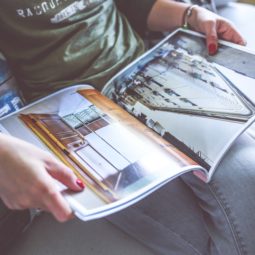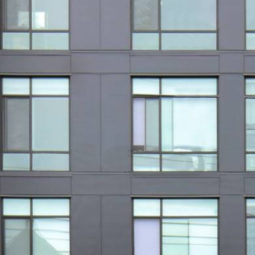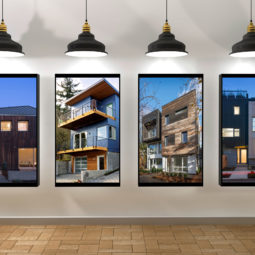Pax Futura consumes up to 80 percent less energy compared with standard-built projects
- By Jeffrey Steele, Multihousing News
Pax Futura, a new apartment community in Seattle, has become the city’s first development to secure certification as a PHIUS+-certified Passive House project from the Passive House Institute US (PHIUS).
Situated at 3700 S. Hudson St., Pax Futura features 32 apartments in a mix of studio and one-bedroom units, plus three live-work units and a commercial space. The apartment community was developed by Cascade Built and designed by NK Architects.
The cost of the development, including land, was $6.5 million. Approximately 10 investors provided the project with financial backing. The development also gained a $55,000 grant from Edwards Mother Earth Foundation to fund a solar hot water system.
MANY QUESTIONS
Those involved had little to no Passive House experience, leading to many design challenges, according to Sloan Ritchie, founder of Cascade Built and Pax Futura developer. “We iterated multiple approaches to the ventilation system, exterior shading system and hot water heating system as well as wall assemblies,” Ritchie told Multi-Housing News.
“We used a collaborative approach and asked a lot of questions. And frankly the team’s high level of commitment to success is how we got through.”
Among its Passive House elements, Pax Futura has a heat recovery ventilation system that supplies filtered, fresh air to every unit and captures energy through exhaust air. Sliding screen elements shield units from west-facing solar exposure, keeping units cool during warm months. Awnings on the south side minimize summer solar heat gain, but let light pass through in the winter. Other design elements include air-tight construction, triple pane windows and doors, extra insulation and the aforementioned solar hot water system.
CONVENTIONALLY BUILT
In heating and cooling apartments, Pax Futura consumes up to 80 percent less energy compared with standard-built projects. Among the benefits to residents are filtered fresh air, a draft-free and temperate interior environment and—due to the high-performance windows and doors—increased quiet and security.
“One of the things that was important to Cascade Built early on was to demonstrate we could change the market and have these buildings be able to be built conventionally in our market, and therefore could be applied to any project,” Ritchie said. “(That) would benefit the community, the owners, the tenants and all stakeholders going forward. That overarching goal kept us on track.”
Two additional Cascade Built Passive House projects are under construction. Solis, is a 45-unit apartment project featuring retail in the Capitol Hill neighborhood of Seattle. The other is a 45-unit apartment development with live-work units in Queen Anne.
« Previous Story Next Story: Top 10 Tips for Multi-Family Passive House Design



